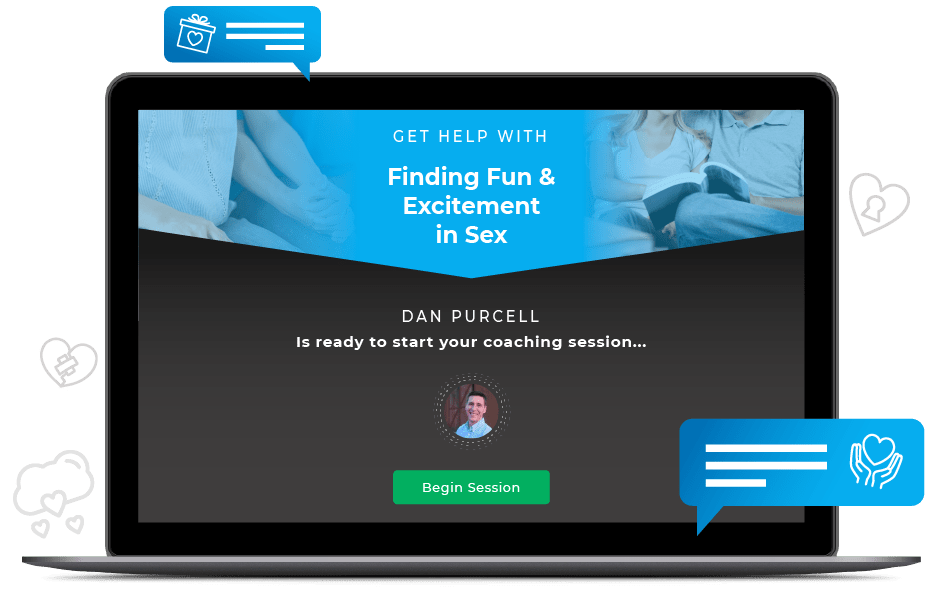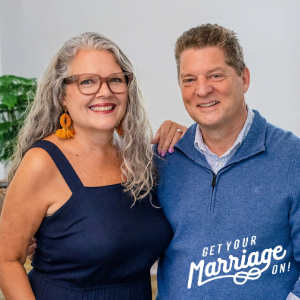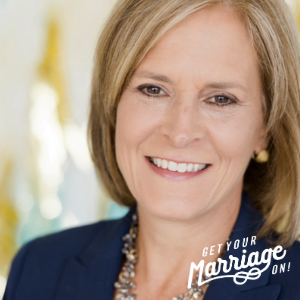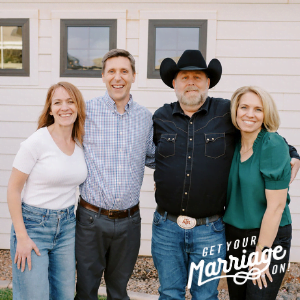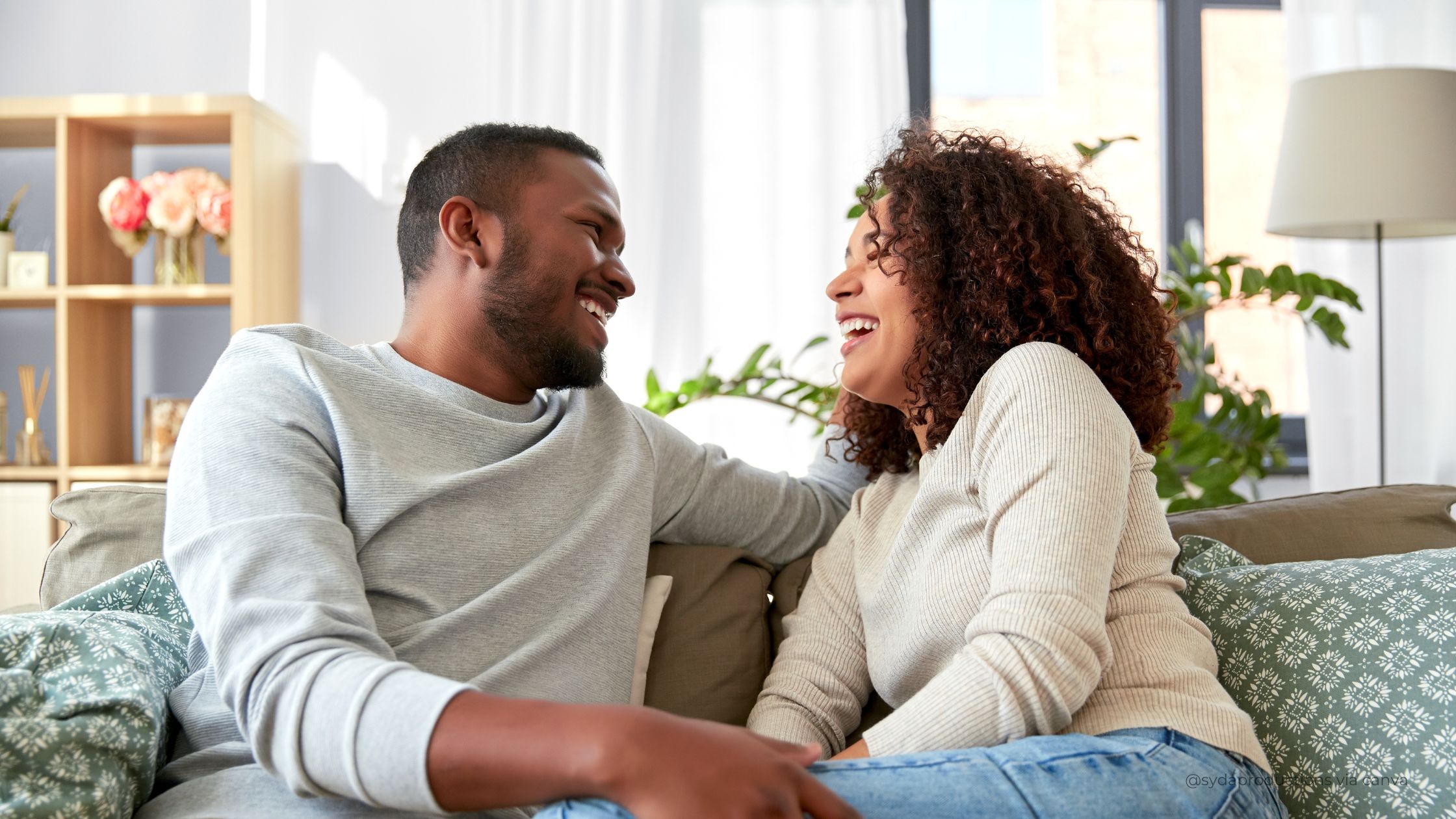We learned so much from Amy this week on our podcast, we split it into two blog posts!
In our last post, Amy shared with us her story of becoming emotionally resilient and learning to love sex.
Here, Amy shares with us how to overcome roadblocks to sexual intimacy and desire.
How can a woman develop more sexual desire within herself?

In order to develop desire within yourself I would address your own anxieties, address your fears, address your breaks. See which ones are based in good judgment and which ones are based in fear and rejection of self. Work on owning your sexuality for you. It is yours. If your brakes are based in fear and rejection of yourself, work on creating a healthy relationship with yourself and your body to let off those brakes. Use all the resources you can!! There are so many podcasts, blogs, therapists, life coaches, mentors and sometimes medicine (if depression or anxiety is severe enough) out there that can help. Seek out those who can help you if you need help developing this relationship with yourself. Be willing to move towards anxieties instead of away from them. Learn how to calm your anxiety.
What Turns You On?
Find meanings, contexts and experiences that turn you on- that are pleasurable and that you enjoy. It’s not true that you can’t be aroused- you can. You may try seeking out stories or themes that arouse you or check out podcasts, books, blogs on intimacy to find ideas of meanings and contexts. You may have to let go of old meanings and see things in new ways. Be willing to try out new ideas and contexts. Maybe it is the feeling of being chosen, or a type of role play, or shifting from your normal roles of pursuer and pursued, or creating secret clues or signals that are just between the two of you so interactions are more playful.
Enjoy Your Body
Give yourself permission to enjoy your body- it is an amazing gift. Shift any negative thinking that your body is broken and create gratitude for it. Let go of negative ideas and unrealistic expectations about your body. Great sex and connected intimacy have nothing to do with body size or perfection (like culture tires to sell us). It has much more to do with emotional maturity, depth of meanings, and the skill of being able to really love honestly. The best sex comes with emotional and relational maturity. Allow yourself to receive your sexuality.
Let Go of Harmful Meanings
Identify and let go of those meanings and contexts, like obligation and care taking, that shut down desire and sexuality. See your role in your marriage as an active participant in choosing and creating fun, fulfilling, pleasurable sexual intimacy. Don’t delegate that role away. Make room for it in your life. Make it a priority. There is so much untapped passion and pleasure waiting for you.
And how do you step into deeper eroticism with your spouse?

Once you have developed a safe place within yourself for eroticism you can enter that place with your spouse. You have to belong to yourself first before you can connect with your spouse. Then you know who you are sexually. You know you have a voice to say yes/no. You know your desires. You trust yourself. And you can now collaborate and actively choose your spouse.
Your spouse may be a higher desire person with all accelerators and not have to process through emotions because they are not a break for them. They still have anxiety but they use sexuality to solve emotions/ anxiety. They have to learn to pursue without the validation seeking and the lower desire has to learn to process through anxiety to not distance.
The Process
So this process can look very different for each spouse. Sometimes, I do this alone and sometimes my husband will just hug me or hold my hand or cuddle me while I process through my emotions. David Schnarch in his book “Passionate Marriage” has a “Hugging Til Relaxed” exercise that is a great example of calming your own anxiety so you can be close to another. You hug each other and allow whatever anxieties and insecurities to arise and stay hugging until you process through those and relax. I literally feel my body relax into itself and that creates a space for us to really connect in intimacy, passion and eroticism.
After my husband’s sex fast of duty sex, I realized how much I wanted to choose him. I wanted to cherish us and our sexuality. It was a choice I consciously made and still make. It has become a priority that we make time for. Schedules are still hard. Life is still complex. Emotions still come up. Navigating preferences and differences is still uncomfortable, but we can actually have those conversations and navigate through them- it isn’t a full stop road block like before. We have more exploration, more frequency, more fun, more fulfilling times because we are actually choosing each other. Lots of openness and honesty help create eroticism. It’s the practice of keeping your eyes open to really see your spouse and connect erotically with them.
More on Emotions and Brakes…
Emotions play a huge role in being able to connect with your spouse and be fully open to intimacy. Emotions can create intimacy or shut it down!
My unprocessed and even unknown emotions were a giant brake that prevented me from engaging in and enjoying intimacy. The problem was I thought my spouse was supposed to remove the brakes and it took me a while to realize that was my responsibility to look at my brakes. And then it took me a while to figure out how to work through emotions that were my largest brakes. I want to share what I’ve learned in this process because it was life changing for me and it helps so many couples that I coach.

What can you tell me about emotions and intimacy? What is their relationship?
Intimacy is a very vulnerable and emotional connection. Emotions play a huge role in being willing to engage and be present in intimacy. So learning about my emotions and developing a relationship with them opened the door for more intimacy.
Moms (and Dads) carry a lot of worry, anxiety, stress, frustration and an emotional load about their children, their homes, their work ,their finances and their sexuality. These unfelt emotions can be a huge brake for intimacy. I found that my unfelt emotions would bubble up throughout our intimacy and it was like climbing an emotional mountain through these while trying to be intimate. It didn’t go so well. Especially for lower desire partners it’s a challenge to feel eroticism with all of the other negative or heavy emotions acting as brakes.
For example, say we had scheduled sexy time together at the end of the day but my emotions are caught up with anxiety over my child, or worry over finances, or overwhelm from a messy house… there isn’t any emotional room or space for eroticism. I can’t just ignore those emotions and pretend they don’t exist, but I do want to be fully present with my husband. Esther Perel says “eroticism is the space between anxiety and fascination” I have to move out of anxiety to move toward fascination.
And how do you do that?
Emotions are important and informative, but cannot be ignored or they intensify, even if you don’t want the emotion. The first thing I learned was to accept and name the emotion I was feeling to lessen its intensity and not layer more emotions on top of it. For example, be frustrated about being sad, or discouraged about feeling lonely. What is the emotion? Sadness, discouragement, uncertainty, pressure, grief, worry, anxiety, overwhelmed, lonely, angry, frustration, etc. I learned to first be aware of what the emotions were and name them. Brene Brown says about emotions “what you can name, you can tame.” This naming increased my emotional awareness and intelligence.

What can you do to remove emotional brakes and move through them?
To help remove brakes, I learned to name my emotions as specifically as possible and then allow myself to feel them in my body. This looks like finding the best word to describe the emotion and then moving into my body and describing the sensations it creates. I basically act like a narrator to myself and describe what the emotion feels like in my body. Anxiety feels like a really tight chest and an urgency and also darkness and a heavy weight.
This step of describing it in your body is very important. Give yourself permission to feel the emotion without the fear that you will get stuck in it. Emily Nagowski says “Emotions are like a tunnel, not a cave, and you can feel your way through them.” You have to enter your body and leave your head to feel your emotions. So many of us try to solve emotions in our head- but they process through the body.
What Created the Emotion
After I have felt it and accepted the emotion… then I can pivot or examine what is creating the emotion. For example, if I’m feeling anxious about a child in a situation at school or with a friend, I can allow that anxiety to fill my body. And I can be present with it. And then I can pivot to acceptance… of course I feel anxious. What does the anxiety show that I value? Or why would anxiety be present? I love this child and want what’s best for them. I can stay there and just allow love or I can keep going. Or I can move my focus towards how I want to be or honor this value often with a question. How can I love or support this child? What is in my power or control? Who do I want to be?
Step into Intimacy
That shift moves me from a walled off emotional space to an open emotional space where I can step into intimacy. This shift can happen in just a few minutes and open up so much space. I can literally feel anxiety leave my body or tension release. Now my body and mind are ready.
A step that helps me prepare for intimacy is to allow myself time before we are intimate to be still, to feel whatever feelings are present at that time, and to create space for them in my body. I sometimes put my hand over my heart and create safety as I feel these emotions. On different days, different emotions appear and often I’ve been so busy throughout the day I haven’t really paid attention to them. I accept the emotions I’m having and welcome them into my body. This quiets my mind and allows me to be open emotionally which creates space for intimacy.
Yes intimacy is energetic and passionate and playful… but before the energy and passion there has to be a calm to enter that place. You can’t reach energetic and passionate emotions from an anxious, distressed or depressed emotional state, especially if you have lower or responsive desire.
Create a Relationship with Yourself First
This process of feeling my emotions creates a strong relationship with myself first, so that I can then connect with my husband. Intimacy requires that you have a strong relationship with yourself first, belong to yourself first, so that you can belong and connect with your spouse. I have to create that calm and open space within me to be able to enter eroticism with my spouse.
Also I will say sometimes, if your emotional brakes are really intense or persistent, you may need the help of a therapist, life coach and medical support to work through your breaks. And there is no shame in that either. Emotional work is so important to being able to enjoy life, sexuality and your relationship.
What are some common emotional brakes? And accompanying accelerators?

- Brake: Anxiety about their bodies- their weight, their size, their ability to orgasm
- Accelerator- create a healthy space to appreciate all that their body can experience and feel each day – gratitude
- Brake: Anxiety because they are unfamiliar or uninformed about how their bodies are sexual or their sexuality- or have disassociated from sexuality (framing it as bad)
- Accelerator- create comfort, safety or permission to learn about and/or explore their sexual desires and natures)
- Brake: Stress, discouragement, nervous over struggles with children or worry over situations with their children
- Accelerator-create space or a functional boundary from children’s emotions and your emotions
- Brake: Disheartened/ drained/ tense over an untidy home, unfinished household work or unfinished work/business
- Accelerator-create permission to experience pleasure along with work of life
- Brake: Pressure to be sexual, feeling used or inadequate
- Accelerator-create space for choice to engage in sexual acts or permission and trust within yourself to say no or create a boundary where needed
- Brake: Uncertainty or Betrayal around spouse porn use
- Accelerator-create trust with yourself and your ability to discern if you think it’s wise to be sexual
- Brake: Financial stress or pressure or hopelessness
- Accelerator-create permission to experience pleasure that’s free!
- Brake: Overwhelmed due to perfectionism or unrealistic expectations
- Accelerator-let go of perfectionistic expectations and be present in the moment, see how intimacy can rejuvenate and refill you- allow yourself to receive and not just give
Wrapping it Up

This process of being still, identifying and accepting my emotions creates space for me to connect with my spouse. My spouse can influence and impact me, but its my responsibility to create a calm and safe space for me first to then enter an erotic space with him. This is how I let off the emotional brakes so that we can enjoy intimacy and eroticism. And sometimes as I let off the brakes I have access to more accelerators… like feeling loved and chosen in our relationship, feeling sexy, empowered, desirable, more flexibility with role play and rituals, etc.
Working through my emotional brakes beforehand creates room for more exploration, connection, and eroticism. It creates more fun and more room for my own desire. It creates a collaborative space for us to build together. We have expanded our intimate relationship in many ways now that weren’t possible before.
We are so thankful to Amy for sharing her knowledge with us. Tune into the Get Your Marriage On! Podcast to hear from more experts!
